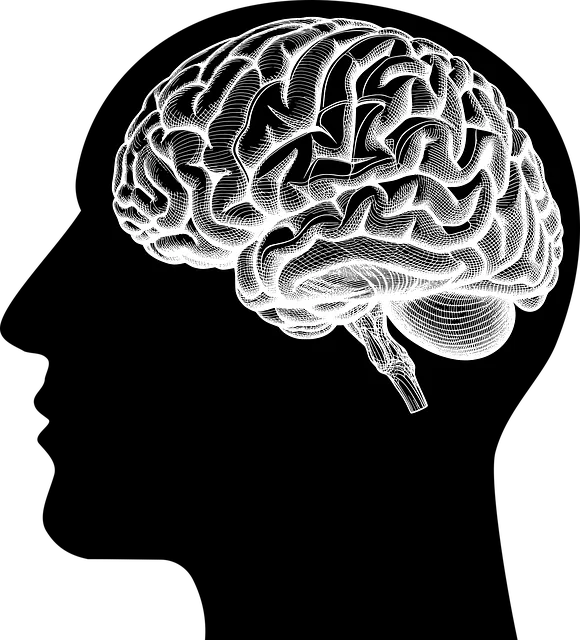The Englewood Kaiser Permanente psychiatry reviews highlight the RFM (Recovery, Flexibility, Mastery) model as a powerful tool for enhancing mental wellness through resilience-building exercises. This structured framework promotes recovery skills by viewing challenges as opportunities, cultivates flexibility through problem-solving and conflict resolution, and fosters mastery via goal setting and journaling. Implementing these exercises in healthcare settings significantly improves patient care, reduces stress, and increases job satisfaction among staff. The case study emphasizes the positive impact on both patients and providers, leading to a healthier, more sustainable work environment as featured in the Englewood Kaiser Permanente psychiatry reviews.
Resilience is a key component of mental well-being, especially in demanding healthcare environments. The RFM (Resource, Fortitude, and Mastery) model offers a structured approach to building resilience among professionals. This article explores the integration of RFM-based exercises into healthcare settings, focusing on a case study from the Englewood Kaiser Permanente psychiatry department. By examining their experience, we can gain insights into how these practices enhance staff resilience, improve patient care, and contribute to the overall sustainability of healthcare organizations.
- Understanding RFM and Its Role in Resilience Building
- Implementing Resilience Exercises in Healthcare Settings
- Englewood Kaiser Permanente Psychiatry Reviews: A Case Study on RFM Application
Understanding RFM and Its Role in Resilience Building

Resilience is a critical component of mental wellness, enabling individuals to bounce back from adversity and navigate life’s challenges effectively. The RFM (Recovery, Flexibility, and Mastery) model offers a structured framework for building resilience by focusing on three key areas. This approach has gained prominence in various healthcare settings, including Englewood Kaiser Permanente psychiatry reviews, as a comprehensive strategy for enhancing patient outcomes.
The RFM model facilitates the development of recovery skills, encouraging individuals to view challenges as opportunities for growth and change. Flexibility is cultivated through problem-solving techniques and conflict resolution strategies, such as those detailed in Crisis Intervention Guidance. Additionally, mastery is achieved by setting achievable goals and engaging in Mental Wellness Journaling Exercises, empowering individuals to take control of their emotional well-being. This holistic approach not only supports resilience but also fosters a sense of self-efficacy and empowerment.
Implementing Resilience Exercises in Healthcare Settings

Implementing Resilience Exercises in Healthcare Settings plays a pivotal role in enhancing patient care and staff well-being, as highlighted in Englewood Kaiser Permanente psychiatry reviews. These exercises, often centered around resilience building, serve as powerful tools to navigate the challenges inherent in the healthcare profession. By incorporating strategies like Empathy Building Strategies, professionals can foster stronger connections with patients, leading to improved outcomes.
Resilience Building techniques not only strengthen mental fortitude but also facilitate effective stress reduction methods. Healthcare workers who engage in these activities are better equipped to handle high-pressure situations, thereby improving job satisfaction and retention rates. This holistic approach, as reflected in Englewood Kaiser Permanente psychiatry reviews, underscores the importance of prioritizing resilience in healthcare settings for a healthier, more sustainable work environment.
Englewood Kaiser Permanente Psychiatry Reviews: A Case Study on RFM Application

The Englewood Kaiser Permanente Psychiatry Reviews serve as a compelling case study demonstrating the effective implementation of RFM (Risk, Functionality, and Mastery) principles in mental health care. This approach, rooted in resilience building exercises, has proven instrumental in enhancing not just patient outcomes but also the well-being of healthcare providers themselves. The review highlights how structured risk management planning for mental health professionals can significantly improve their ability to navigate complex patient scenarios with empathy and skill.
By integrating strategies for empathy building into their practice, the psychiatry team at Englewood Kaiser Permanente has fostered a more supportive and compassionate environment. This not only contributes to better patient engagement but also serves as a crucial element of mental wellness podcast series production, where sharing these experiences can further enrich the broader mental health community. The case study underscores the importance of resilience-focused initiatives in addressing the unique challenges faced by mental healthcare professionals, ultimately promoting a healthier and more sustainable work environment.
The implementation of RFM and resilience building exercises, as demonstrated through the Englewood Kaiser Permanente psychiatry reviews case study, highlights the significant role these strategies play in enhancing healthcare settings’ ability to support patient well-being. By integrating RFM principles, mental health professionals can foster a more resilient environment, ultimately improving patient outcomes. This approach not only equips individuals with effective coping mechanisms but also strengthens the overall resilience of healthcare systems.






